Short Story Finalist: The Long Haul
Vivian sat by her dying boy’s bed, nodding, starting awake, nodding again. She’d been here with him from almost the beginning of this hospital stay because somehow she knew in her heart, he wouldn’t leave — at least alive. She and Floyd, her husband and Mike’s father, had taken turns to begin with, sitting with Mike, but now they both stayed. Mike’s wife drifted in and out, and so did their kids, but they all had jobs and obligations. Vivian’s only obligation now was to her first born, the pride of her life, her son, her friend. Now she stirred, and a line from a comedy routine came back to her: “Cap’n, my butt is dead and the legs ain’t fer behind.” The chairs were initially comfortable, but gradually they sucked the feeling from your posterior as if designed to cause short stays: the kind hospitals ordinarily recommend. She was here for the duration, however.
She switched the hand she was holding with Mike and looked at his decimated face. It was some sort of cancer, they told her — very rare, a melanoma but not quite, almost like AIDS but not quite. He’d been part of a study; he’d had tests done in Boston; the doctors were more or less confounded by the disease and its effect on him. His weight had slowly decreased to where she doubted he weighed a hundred pounds now — down from the strapping, sturdy-framed boy, the handsome man she’d reared and felt more a companion than a son. They’d lived near each other in Alaska, Floyd and Mike working together at times. When Mike and his family moved to Hawaii, Floyd and Vivian followed for long periods. Even then, he was sick, but the Hawaiian sun had staved off the illness. Mike would lie out in the heat of the day, soaking in the sun, which in some way seemed to heal him. He’d even returned to work for a while, but then his wife (and Vivian would never forgive her for it) grew homesick for “her people.” She wanted to move back to the mainland, and she chose Utah — where the winters could be cruel and the sun sometimes only vaguely shone for stretches of days. There’d be no more lying in the sun for Mike, and he quickly became sicker with each passing day. He’d been back and forth, into and out of the hospital until this last time: what Vivian called “the long haul.”
It was fitting that the sun had been so healing. When she thought of Mike as a child, she thought of him in tones of gold and brown, his skin a deep tan, his intense brown eyes snapping, his beautiful white teeth gleaming against the darkness of his skin. She thought of the time when Mike had tripped on the step and fallen face-first onto the stoop. Aside from the fat lip, he’d chipped a front tooth, but even that had only lent to his handsomeness the way a small scar on a man’s face will.
It made him at once less pretty and more handsome; the chip was small and from then on when he smiled, while you might notice the chip, his smile took on a rakishness that became him. He was always an outside boy, preferring the fields around their ranch to any school room. When they’d moved to town, he’d still found ways to be outside; it was as if he sought the sun always. He hired out to the local ranchers during haying season; he’d sooner dig a ditch than go to school; but, of course, his parents had insisted he attend, and he did, graduating from high school and immediately going into the construction field where he could be outside. He could drive any truck or manage any machinery; he could fix them too. He was a clever kid. Her heart came near to bursting at the thought of him as a child and a young man. His black hair and brows set against his flawless skin, his brilliant smile — all made him a favorite of the town girls. It wasn’t long before he and his girlfriend Peggy showed up to announce that she was pregnant. They’d get married soon, they speculated; and Vivian and Floyd had given them their blessing. What else do you do? He certainly was a man now, and though she had her doubts about his judgement, his life was his to form. Peggy and he had had that baby, and soon there were two more. They were awfully young, and Vivian wasn’t too surprised when she began hearing the stories of how much they drank and how many parties they attended. The two boys and their girl were frequent visitors at Floyd and Vivian’s house. They, neither one, were that old, and they had lots of energy for these first grandchildren– they welcomed them. Vivian and Floyd were pragmatists if nothing else — you simply bent and flowed and accepted. It was their way, the only way they knew. Vivian could say little; she’d been a wild young girl herself. Floyd had shown up at their farmhouse, a traveling salesman — he’d sold her tough old mother nothing, but he stole Vivian’s heart. So she and Floyd had been married; they were young, and the union was against her parents’ wishes, but their disapproval had mattered little to her: she’d found her man, and she knew they’d be all right. And they had been. They’d moved a lot, garnered little in the way of possessions, held various jobs — backbreaking, mind-numbing at times — but their family had been their rock. First the golden child Mike, his comely sister Susan and when little Kelly was born, almost an after thought, they’d been complete. Vivian cared little that they went without, that they often moved, that they left behind possessions. It was family that mattered. The new baby Kelly was as round and happy as a baby could be. This was what life was all about, thought Vivian, as she held the little bundle close — she thanked God for His bounty to her.
For a while, they’d prospered, even building their dream home at the top of a new addition in Livingston, where the wind blew so hard that their screen doors had to be built on runners rather than opening in and out as doors were supposed to do. They’d been happy there, but jobs of their sort didn’t last: the sawmills lay off workers, restaurants close, the railroad no longer needed Floyd’s time. They lost the house and moved to Alaska. Soon Mike and his family moved there too; there’d been a divorce and the wife was new along with several of her own children, but Vivian and Floyd had welcomed them too, and their family circle grew. This was the time, which Vivian remembered with great happiness since they were all together in a fairly close group, Mike and his new family just a few miles down the road, Susan and her family in town, Kelly living with them for the time being. Then Mike began complaining of his skin. He’d showed his mother the sores, and sometimes he could barely walk for the pain on the soles of his feet; any rough fabric on his back caused agony.
The doctor put it off to poor shoes at first, and then poor circulation, and finally he just shrugged and told Mike he needed to see a specialist.
In Alaska then, there were few specialists, so Mike made an appointment in Seattle, flew down, and spent several days going through a myriad of tests and office visits. The specialist had been confounded too. It would probably go away, the Seattle doctor advised — just give it time, he said. Mike had flown back, gritted his teeth, determined to wait this thing out. It niggled at Vivian’s mind — Mike just didn’t seem right. Any time she was around him, she could see the misery in his eyes; he lost weight; soon he more resembled his wiry father than her sturdy Scotch side. His hair thinned, the beautiful black curls were gone, but then his dad was bald too, had been for years. The hair loss might not have hurt, but Mike was hurting. He tried the doctor again, only this time he made an appointment in Seattle with an oncologist. Vivian and Floyd took the kids, and Mike’s wife flew with him. What followed — the lack of a diagnosis let alone a prognosis — was a black hole in Vivian’s mind. All she knew was that her boy was in pain and nobody seemed to know what to do about it. He was accepted into an experimental program in Boston to which he flew and where he stayed for months. Upon his return, the grim look on his face told it all: the doctors couldn’t put a name to it, but they knew this much: Mike was dying. They advised him to move someplace sunny, as Mike had mentioned that the only relief he felt from the agony of his skin was when he was in the sun. Soon after his return to Alaska, he and his wife and kids moved to Hawaii. For a while the condition abated. Mike and his new wife adopted two more children, their family swelling to five, with Mike’s first three living with their mother in Montana. Floyd and Vivian soon found their way to Hawaii where their help and companionship were welcomed. Floyd found a job driving a bus; Vivian took care of the house and children while Mike and Claudia worked. The sunny, warm days of Hawaii were balm to Vivian’s soul as well as to Mike’s health. She envisioned them spending the rest of their days there — close to Mike and his family. Susan and Kelly stayed in Alaska, but because Kelly worked for an airline there, they were able to visit often inexpensively. Then came the rumblings from Claudia about “missing her folks, her people.”
“Good Lord!” Vivian had exclaimed to Floyd, “If you needed to stay in a place for your health, I’d be there with you and not moaning about my family.” But she’d said nothing to Claudia, and Mike seemed acquiescent about the impending move. “She’s not happy here, Mom,” he’d explained.
“But you’re happy here,” Vivian had protested.
“I know, but I don’t want another wrecked marriage.” he’d replied.
“She’s miserable here.”
“How can she be miserable in paradise?” Vivian had wondered aloud to Floyd. But Mike had seemed better of late; maybe the move would not affect him. Once again, they flowed, they bent, they accepted. Vivian and Floyd prepared to move back to the mainland too, having sold their Alaska house and acreage. Maybe they’d move to Anchorage to be close to Susan and her family. Vivian didn’t like the idea of spending much time in Utah. She was still angry with Claudia, and such feelings didn’t make for good neighbors. It wasn’t long though before, through phone calls and letters, Vivian discovered that her high hopes for Mike’s recovery were ill-founded. He began another round of doctors and hospital stays. By the time Mike had been put into the hospital three times, Vivian and Floyd had sold most of their possessions, given up their jobs, bade goodbye to Susan and Kelly and headed to Utah in their new twenty-foot pull trailer. They found a year-round campground and set up their home, dedicating their time to Mike.
Now Vivian felt Mike’s hand stir and looked up to see him cocking his head, listening intently for who might be in the room. One of the effects of the disease had been to attack his eyes, those beautiful brown orbs that had brought her such a swell of heart when they lighted on her.
Now they were glued shut: “SuperGlue,” the doctor had explained when he came to do the procedure. “It’s fabulous stuff; it doesn’t hurt, and he’ll be much more comfortable than he was with those weeping eyes.” The damned saw bones, she thought, acts as if he invented the stuff. She’d stood by as he rimmed Mike’s sightless rheumy eyes with the liquid and squeezed then shut. The finality of never seeing his eyes again just presaged the finality of what was about to happen. She steeled herself as she bent over Mike’s body, “How’re you doin’?” she asked.
Mike smiled slightly at the sound of his mother’s voice. Even with all the weight loss, he still had his dimples, his darling dimples, she thought.
“I’m all right,” he replied. “My mouth feels like the Russian army marched through it.”
Vivian reached over and brought the Vaseline bottle to hand. She took a bit on the end of her finger and rubbed Mike’s mouth with it. “Do you want some mouth wash?” she queried.
But already he was asleep again. That tiny bit of comfort was enough to buy him more sleep, but it had also worn him out. Soon enough she knew, he would not wake up, but would slip into that nether world of coma and from there away from the confines of the earth. She didn’t want the time to hasten, as she could not stand the thought of losing him. On the other hand, to watch someone you love suffer such misery was a type of hell all its own. How could she NOT wish him dead, she thought. To buy him health, she would have given her own life. She’d offered herself to God on more than one occasion in the past weeks. One should simply not outlive one’s child, she thought. It is against all nature! Her thoughts returned to her own mother and her biting words, uttered once in anger after Vivian had pushed her too far: “I wish it had been you, and not my Mae who’d died.” Through all the years, Vivian had been aghast at her mother’s outburst, but she began to see what the old lady might have been about. She wouldn’t wish such a death on any of her children, but for God to take Mike was too big a sacrifice; her mother had felt the same. Mothers may try to be neutral and equal in their love, but secretly, and even interchangeably at times, mothers will have favorites.
She glanced over to her husband as she straightened up; Floyd had a grasp on Mike’s other hand, and he sat with tears brimming his eyes. “I can’t stand life without him,” he sniffed. “He was my partner, my son. Why won’t God take me instead? I’m old; it’s my time!” At that, he released his hold of his son’s hand and wept. To see her man cry after the many disappointments they’d faced tore at her heart. Here was the most grievous of all — pregnant daughters, mixed-up grandchildren, thoughtless relatives — nothing seemed even near this pain. I’ll never live through this, she thought almost hopefully. Let me die with him, but her heart was good, her voice strong; she was not to gain that wish any time soon. She’d read a poem during her stay here from one of those volumes that seem to pop up in waiting rooms and untended libraries. The poem by Robert Frost was entitled “Home Burial”; in it a mother tries to come to terms with the death of her little boy, her first born. Vivian remembered the line “The nearest friends can go with anyone to death, comes so far short / They might as well not try to go at all.” How true, thought Vivian. She felt a kinship with her now-dead mother that she’d never felt before. She supposed that such experiences are the life binders for the generations. She recalled that Mike had belonged to a cancer survivor group for a while, and he would come home almost aglow. “It’s so wonderful to talk to someone who’s been there.” The relief in his face would sometimes last for days.
After a while, Vivian glanced out the window. The hospital was beautifully landscaped, and she watched as the trees bent and flowed with and accepted the wind.
Editor’s Notes: Patricia Malcolm Rosenleaf is a retired educator who recently published a novel, Stone Garden. Her particular interests include liberal politics, animal welfare, education, and US and world news. You may find Pat on FaceBook, LinkedIn, and at the blog site she created for her local union, Education Matters. This story is a finalist in the News Junkie Post short-story competition. The competition is still open; submit your entry. Photographs one, four and six by Kent Campbell; photographs five, seven and eight by Kevin Dooley; photograph two by Gilbert Mercier.
Related Articles

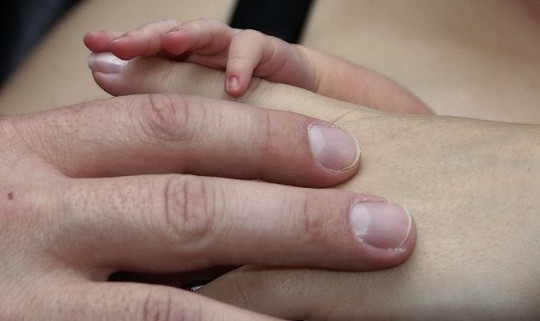
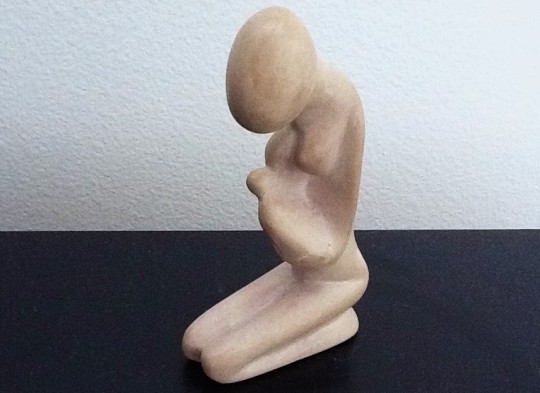
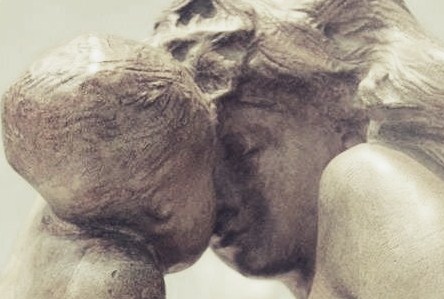
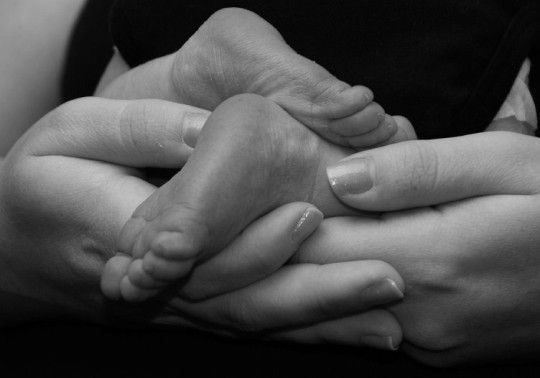
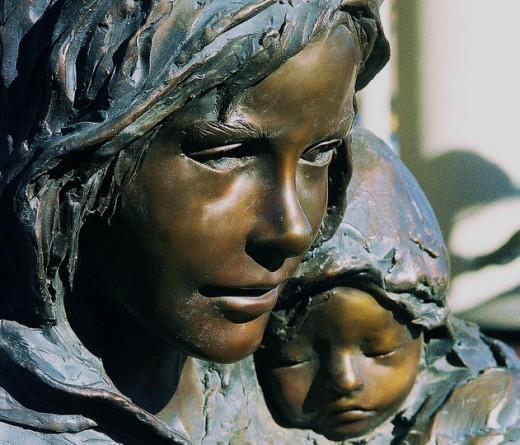
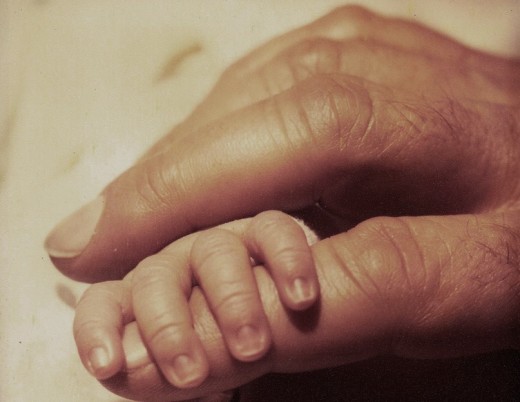
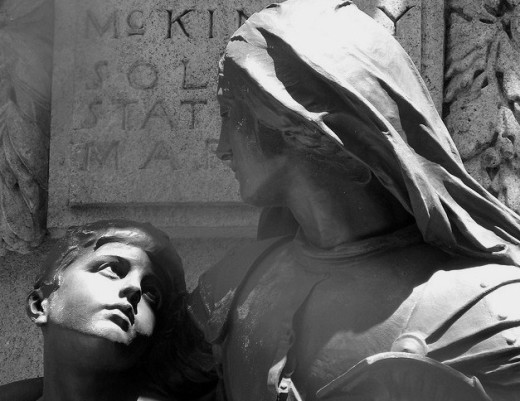
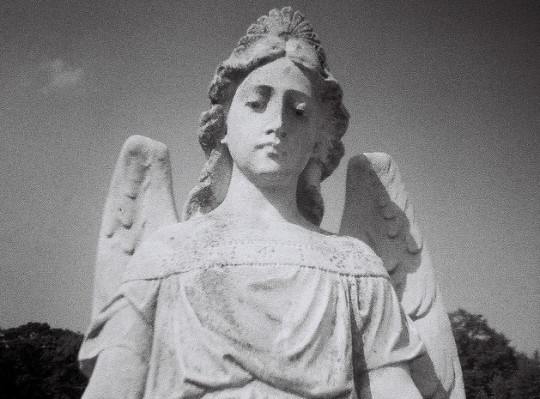











You must be logged in to post a comment Login